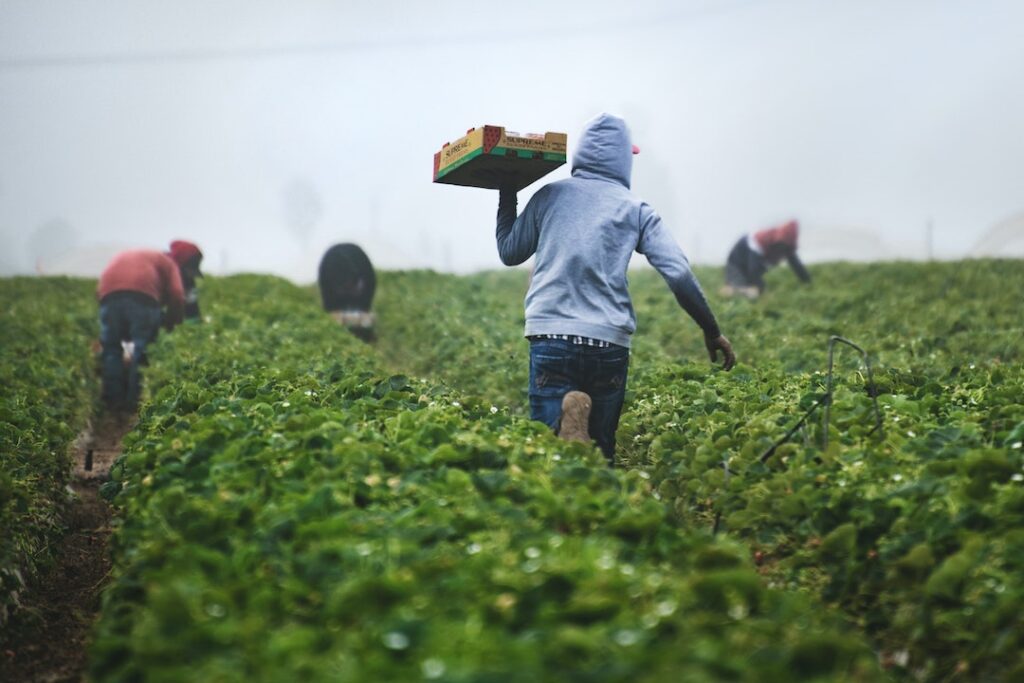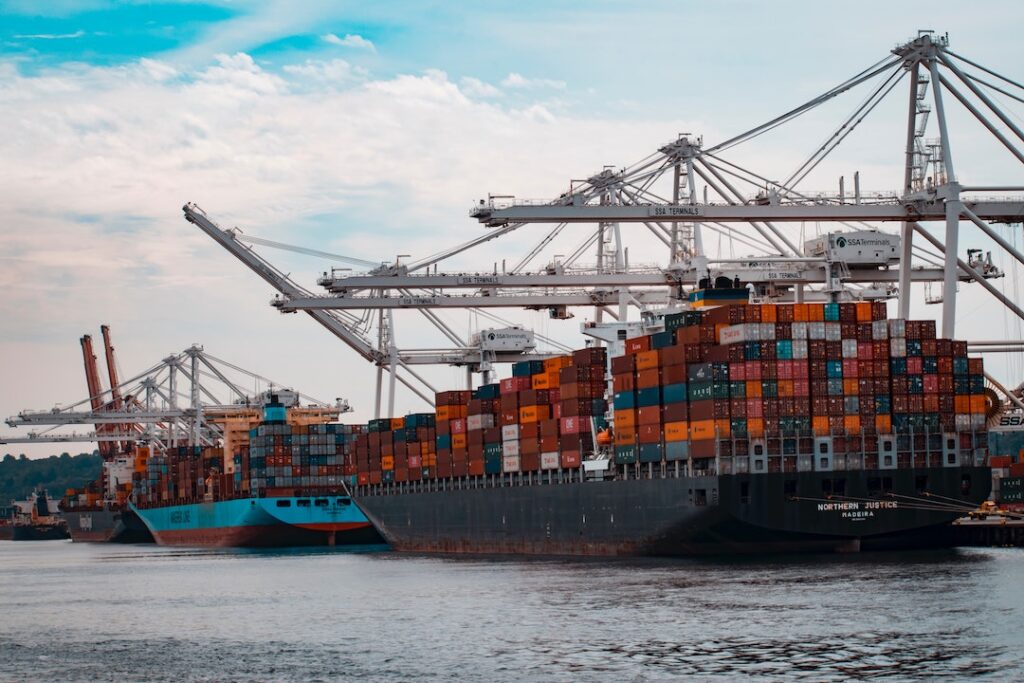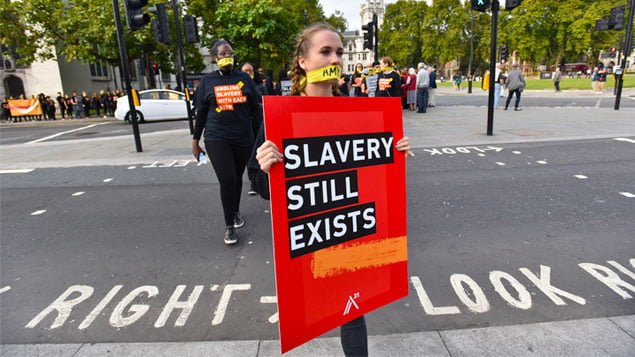Modern slavery may not be something you think about when you purchase a new pair of jeans but it should be – and Nicholas Bernhardt, founder of Australia’s leading technology platform designed to help organisations report under the Modern Slavery Act, Informed 365, will tell you why.
Modern slavery was not a topic often discussed prior to the release of the Australian Government’s Modern Slavery Act in 2018. The Act requires organisations with over AU$100 million annual consolidated revenue to produce a report identifying and remediating instances of modern slavery in their operations and supply chains.
Modern slavery describes serious exploitation in the workplace, such as human trafficking, slavery, servitude and forced labour, amongst others. Findings from the Global Slavery Index estimate there were approximately 15,000 people living in “conditions of modern slavery” in Australia in 2016. These figures exclude the millions of victims offshore who work directly or indirectly for Australian organisation.
On Australian shores, instances of modern slavery can be found in factories, on construction sites and farms. Typically, out of sight, people are being exploited for personal or commercial gain. Preying on vulnerable backpackers, international students, asylum seekers and migrants, low-paid workers are taken advantage of through misleading promises of Visa sponsorship, comfortable living options and pay progression opportunities. Retail manufacturing, farm work and labour-intense industries like construction are most at risk of exploitation.
So where does it all start?
International businesses manufacture and produce products in low paying countries to reduce costs and improve their revenue. As most of these issues occur offshore, Australian-based businesses are tempted to feign ignorance, or claim they are unable to monitor standards correctly, especially since the onset of COVID-19 which has resulted in reduced compliance related travel. By supporting this system, organisations are adding to the cycle of modern slavery. However, the traditional ‘don’t ask, don’t tell’attitude of corporates is slowly being undermined as consumers and key stakeholders are starting to demand ethical manufacturing and sustainable purchase decisions.

The danger of supply and demand
COVID-19 created unexpected supply and demand issues that have led to international shortages on a wide range of products through the closure of factories and ports. Most concerningly, The International Labour Organization has reported that due to the catastrophic economic downturn, they expect that an additional 63.9 million workers across the world will work in poverty as a result of the pandemic.
As essential items such as facemasks, toilet paper and sanitizer become scarce, vulnerable, and low-paid workers are forced to work overtime without appropriate compensation. Already unsafe working environments are exacerbated as workers are unable to socially distance and are not equipped with adequate personal protective equipment during a period of heightened vulnerability. Unscrupulous organisations wanting to capitalise on this increased demand, and significant profit opportunity, sadly encourages even more exploitation. If and when factories are unable to meet the dramatically higher demand, buyers often threaten to engage with other suppliers placing even more pressure on the factories to exploit their workforce.
How the supply chain needs to change to reduce modern slavery
The pandemic proved that the current highly interconnected supply chain model is susceptible to sudden disruptions as it only takes one small issue to trigger a domino effect on an entire network. In most cases, offshore manufacturing remains cheaper, but progressive organisations – and those required to report under the Modern Slavery Act – are looking at ways to diversify their risks and consider the expansion of their onshore operations.
Until minimum wages reflect a consistent global standard, Australian businesses need to consider how their products and services can be produced more sustainably. Options include a hands-on approach to managing third-party suppliers, moving manufacturing and supply networks onto Australian soil, or using technology, like Informed 365’s platform, to identify risks within an organisation’s network. Social and environmental sustainability should be an integral part of every organisation’s business strategy and corporate vision.

Why you should care
Supply chains and organisations that function and rely on corner cutting and exploitation are denying basic human rights to the workforce that keep their business afloat. This largely invisible issue can only be resolved by educating organisations, consumers and key stakeholders. There is no justification to maximise profits in an egregious manner at the expense of basic human rights. It is refreshing to see that consumers are also beginning to take more interest in where their products are sourced from and who makes them.
How to help
As a business
There is no half-hearted approach to tackle social inadequacies – Australian businesses must make a commitment to sustainability across the board. This can be done by thoroughly reviewing their supply chains including direct and indirect suppliers, sub-contractors, raw materials, manufacturing sites, and logistics.
Identifying instances or risks of modern slavery and amending these issues is not something that can be done overnight – organisations need make a long-term commitment. This involves ongoing monitoring of all facilities, understanding your businesses’ supply network, developing an actionable corporate social responsibility policy, and having a team dedicated to stay on the front foot of sustainable improvements.

As a consumer
Be a conscious shopper. A small amount of research will help identify countries that have high rates of modern slavery in their manufacturing facilities. Similarly, check your favourite brand’s corporate social responsibility policy prior to making purchases to ensure you know where and how the products are made. Ask your retailer about their policies regarding human rights and environmental issues. Be considerate of the price tag – if a t-shirt costs $5, contemplate how long a product like this would take to create and the worker being paid after all the design, transport, and branding offsets have been covered.
Slavery is not a new issue, yet the current numbers reveal there is more exploitation in workplaces than ever before. This human rights issue highlights the profit over people attitudes of businesses globally – this needs to change. The future of business must move towards sustainability and humanity if we want to see our planet and civilization thrive. Transparency is pivotal in maintaining an economically, socially, and environmentally sustainable future.

This article was written by Nicholas Bernhardt, founder of Informed 365 – an industry-leading tech solution for companies required to report under the Modern Slavery Act compliance. With a passion for sustainable workplaces and positive world change, Nicholas started Informed 365 after seeing a disconnect in organisation’s corporate social responsibility and the tools at their disposal.
Lead image courtesy of Matthew Chattle/REX.

